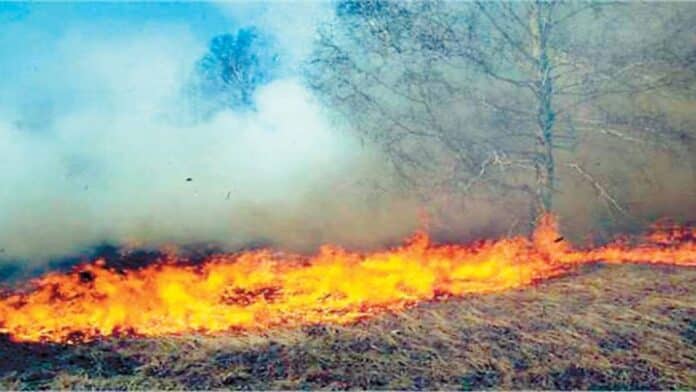Farmers are being made “villains” and they have not been heard, the Supreme Court observed on Tuesday while hearing a matter related to stubble burning which affects the air quality in the Delhi-National Capital Region.
A bench of Justices Sanjay Kishan Kaul and Sudhanshu Dhulia also suggested why should there be any purchase under the minimum support price (MSP) system from farmers who indulge in crop residue burning, irrespective of the fact that citizens and children were affected due to pollution.
Though the Punjab government informed the apex court about the steps taken by the authorities to control crop residue burning, senior advocate Aparajita Singh, who is assisting the court as an amicus curiae in the pollution matter, flagged that even on Sunday, more than 700 farm fire incidents were reported in the state.
“What are they (authorities) doing?” Singh told the bench.
Justice Dhulia observed, “The only person who can answer this is the farmers. He can tell you why he is doing it. He is not here. The farmer is being made a villain and the villain has not been heard.”
“He (farmer) must be having some reasons,” Justice Dhulia said.
The top court was hearing a matter related to crippling air pollution that chokes Delhi-NCR every winter.
During the hearing, the bench suggested, “Why should on the MSP basis, anything be taken from farmers who enlighten the fire?”
It said people, despite the observations from the court and counselling, still keep on burning fires in farms.
“Then the stick must also follow the carrot. Why should there be any purchase under the MSP system from people who have lit the fire?” the bench suggested, asking why should people who continue to violate the law be allowed to benefit monetarily.
Attorney General R Venkataramani said that MSP was a complex issue.
Also Read
The amicus said the states must ensure that farmers get the machines used for disposing of the crop residue.
Besides the issue concerning crop residue burning, the bench also took up other matters including the one related to open waste burning in Delhi and Uttar Pradesh.
The top court is seized of a plea filed in 1985 by environmentalist M C Mehta on air pollution and the issue of crop residue burning had arisen during the hearing of the matter.
While hearing the matter on November 7, the apex court directed Delhi, Punjab, Haryana, Rajasthan, and Uttar Pradesh to ensure residual crop burning was stopped forthwith.
The local station house officer was made responsible for checking farm fires under the overall supervision of the director general of police and the chief secretary.




